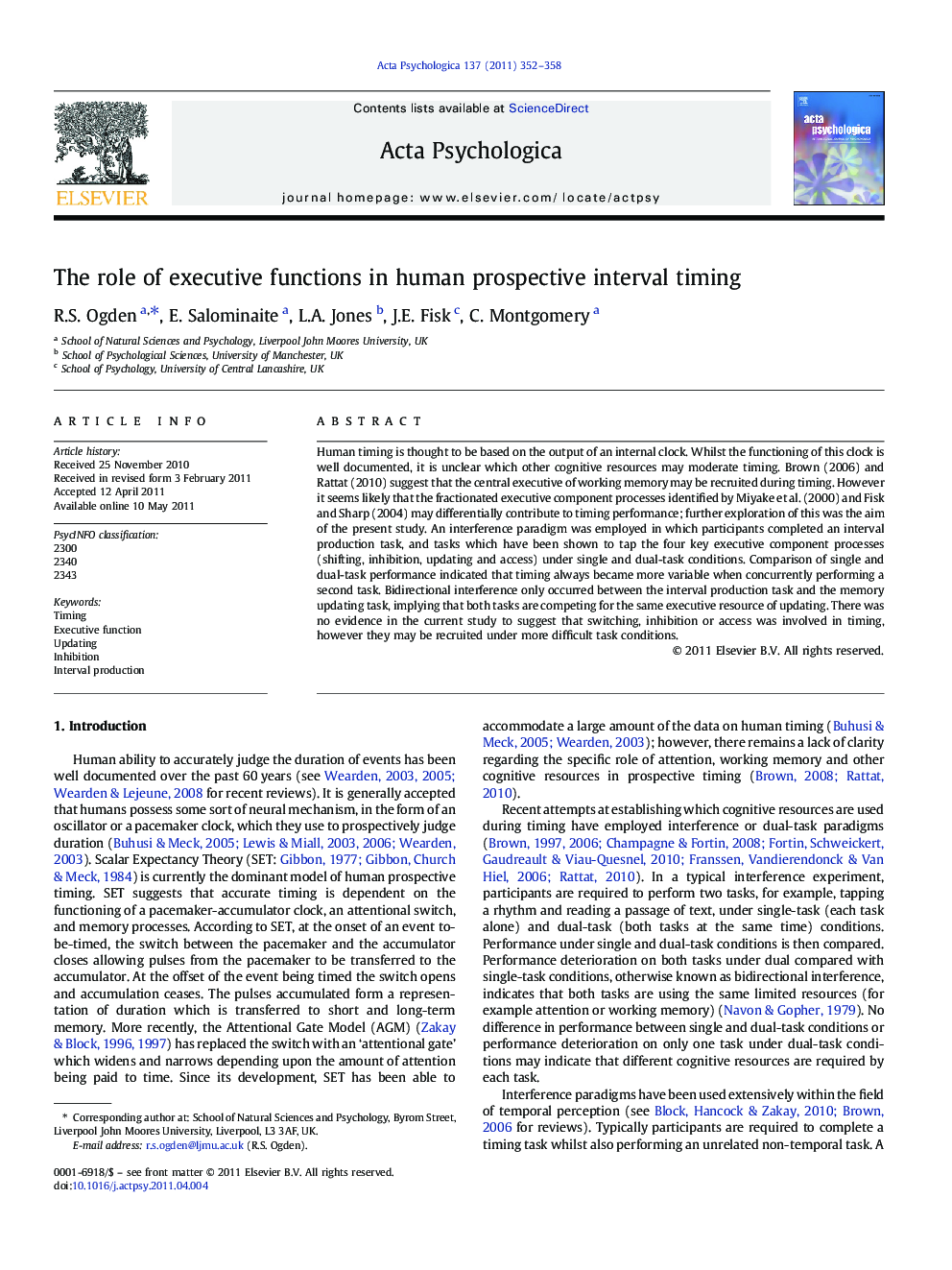| Article ID | Journal | Published Year | Pages | File Type |
|---|---|---|---|---|
| 920036 | Acta Psychologica | 2011 | 7 Pages |
Human timing is thought to be based on the output of an internal clock. Whilst the functioning of this clock is well documented, it is unclear which other cognitive resources may moderate timing. Brown (2006) and Rattat (2010) suggest that the central executive of working memory may be recruited during timing. However it seems likely that the fractionated executive component processes identified by Miyake et al. (2000) and Fisk and Sharp (2004) may differentially contribute to timing performance; further exploration of this was the aim of the present study. An interference paradigm was employed in which participants completed an interval production task, and tasks which have been shown to tap the four key executive component processes (shifting, inhibition, updating and access) under single and dual-task conditions. Comparison of single and dual-task performance indicated that timing always became more variable when concurrently performing a second task. Bidirectional interference only occurred between the interval production task and the memory updating task, implying that both tasks are competing for the same executive resource of updating. There was no evidence in the current study to suggest that switching, inhibition or access was involved in timing, however they may be recruited under more difficult task conditions.
Research highlights► The role of executive functions in timing was assessed using a dual-task paradigm. ► Bidirectional interference occurred when completing SSS and the timing task together. ► Memory updating resources appear to be recruited during interval timing. ► Switching, inhibition and access resources were not recruited during timing.
